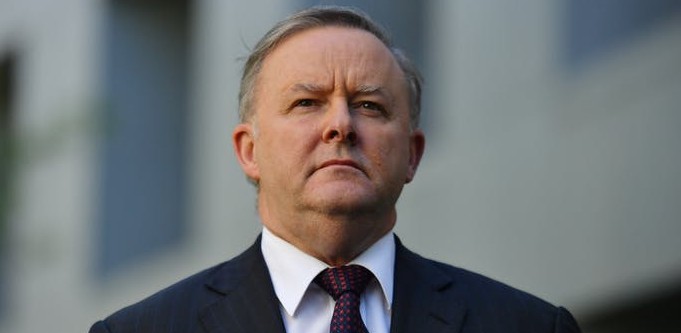
Source: AAP/Paul Miller.
Employee casualisation has become a hot-button topic in the 2022 election campaign, after Opposition Leader Anthony Albanese’s claims of an increasingly casual workforce were rebuked by the Australian Financial Review.
On Tuesday, the paper dismissed Albanese’s claims that casual workers are growing as a share of Australia’s workforce, pointing to recent figures from the Australian Bureau of Statistics (ABS).
In its latest detailed breakdown of the labour market, the ABS reports the number of Australians employed on a casual basis was 2.3% lower in February 2022 than in pre-pandemic February 2020.
The latest readings are 4.8% below the 2003 peak, the AFR added.
In rebuffing the Labor leader, the paper added its voice to a broader conversation about the nature of work in Australia, and who stands to benefit from casual employment.
On Monday, the Australian Council of Trade Unions (ACTU) released a report estimating some 4.15 million workers now occupy insecure positions — defined as casual workers, those retained by labour hire positions, workers on rolling contracts, and gig economy labourers.
The flexibility of casual or gig-economy work is counteracted by the wages those workers receive, the union said. Workers in that cohort can expect to earn $350 less per week than their fully-employed compatriots, the report claimed.
“This report makes clear what millions of Australian workers already know – insecure workers are being ripped off, and the Morrison Government is doing nothing to stop it,” ACTU secretary Sally McManus said in a statement.
However, the Australian Chamber of Commerce and Industry was quick to hit back, issuing a statement vouching for the utility of casual work — both for workers and employees.
“Australia needs practical, accessible options for casual work more than ever, particularly as businesses navigate the uncertainty of job creation, investment and recovering markets following the pandemic,” said ACCI chief executive Andrew McKellar.
The stoush over the true casual work rate, and arguments over who benefits from such arrangements, speaks to a broader issue: the way new employment practices, led by gig economy operators, have muddied traditional notions of ‘holding a job’.
While the ABS states casual employment has gone down since early 2020, it is also true the number of Australians holding more than one job has hit record levels.
As wage growth remains stagnant, critics warn it is becoming harder and harder to make a living with one source of employment.
Beyond strict definitions of ‘casual work’, it is this thought process that appears to have shaded Labor’s campaign so far, and the party’s push to provide leave entitlements to gig economy workers.
“We will make more secure work an absolute priority as well and put in place measures which put pressure to lift wages, not to not to put downward pressure on wages,” Albanese told Triple M Hobart on Tuesday.
Handpicked for you

Election 2022: Jobs, the skills shortage, and how the Coalition and Labor plan to win your vote



COMMENTS
SmartCompany is committed to hosting lively discussions. Help us keep the conversation useful, interesting and welcoming. We aim to publish comments quickly in the interest of promoting robust conversation, but we’re a small team and we deploy filters to protect against legal risk. Occasionally your comment may be held up while it is being reviewed, but we’re working as fast as we can to keep the conversation rolling.
The SmartCompany comment section is members-only content. Please subscribe to leave a comment.
The SmartCompany comment section is members-only content. Please login to leave a comment.